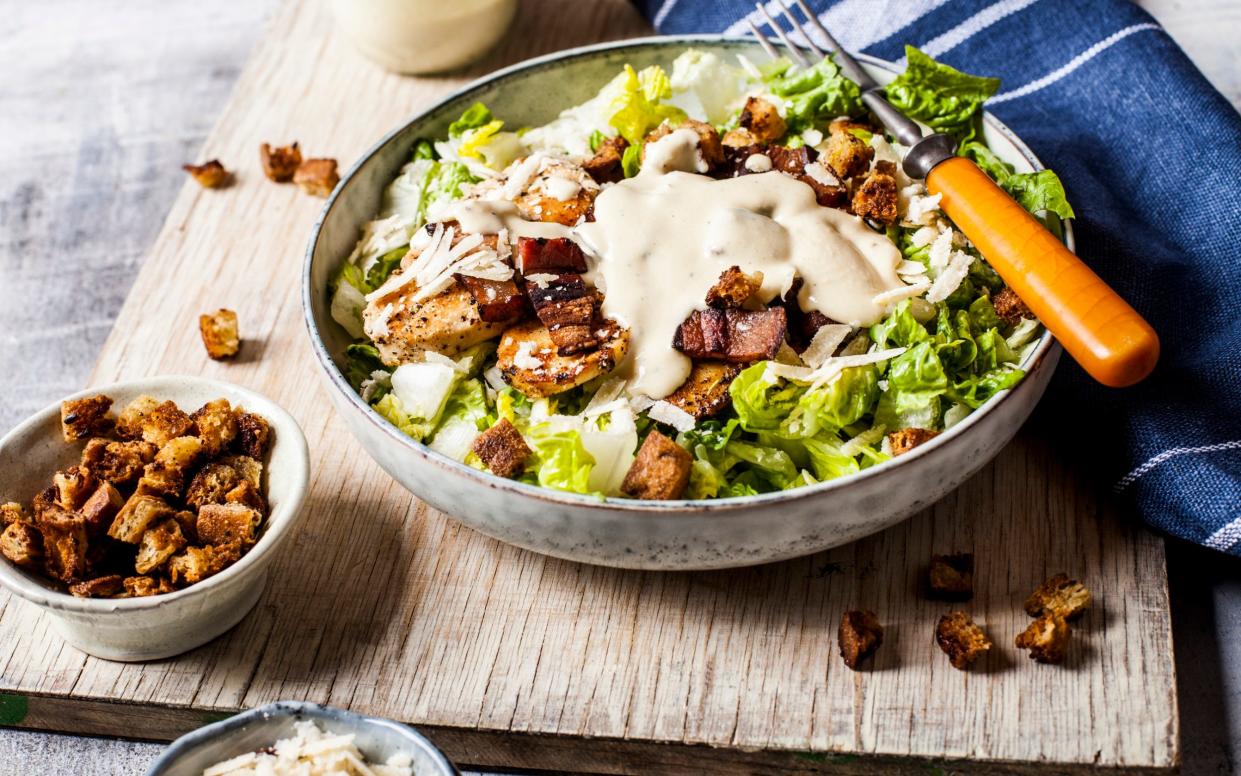The Caesar salad is proof that a good story goes a long way

For some, there will likely be lots of things to celebrate this 4 July, but chief among them is that it is the 100th birthday of the Caesar salad (making it three months older than Jimmy Carter, three months younger than A Passage to India). These were the days of Prohibition; the dish was born in Tijuana, Mexico, which was booming as Americans crossed the border in search of something stronger than apple juice, where one Caesar Cardini ran a popular Italian restaurant. Legend has it that one day, struggling for ingredients, the proprietor cobbled together a mix of lettuce, croutons and Parmesan in a dressing of lemon juice, egg, oil, garlic, salt and Worcestershire sauce. It sounds absolutely disgusting, doesn’t it?
A hundred years on, you can find practically anything thrown into a bowl and called a Caesar, and not only chicken or bacon or anchovies. Kale, smoked trout, kimchi, carrot, chickpeas: endless crimes. You scarcely need the dressing; Caesar salad is more a state of mind. Although these variations are not true to the recipe we have come to know, they are true to the spirit of its creation: bundle some things together and hope for the best.
The Caesar salad is proof that a good yarn goes a long way. Even if you don’t know the origin story, the word Caesar is deeply appealing. This is the light lunch of a Roman emperor, you think, or at the very least someone taking a break from gambling in a famous Las Vegas casino. Cardini may not have thought of this, but the word association suits the dish: it is light but indulgent, a salad with lashings of salt, bread and cheese. A Cardini salad would not be marking its 100th birthday.
The Waldorf salad is similarly blessed: the invocation of a fancy hotel in New York helps dress up a concoction of celery, apples, grapes and mayonnaise – later walnuts too – that in other circumstances would sound like a punishment. It’s what makes that Fawlty Towers episode so funny, the idea that by ordering one, a sophisticated American guest might bring a modicum of civilisation even to Torquay, while Basil’s desperate alternatives – ‘lettuce and tomato’, ‘walnuts, cheese’ or ‘apples, grapefruit and potatoes in a mayonnaise sauce’ – are worse than the real thing.
They’re not the only dishes to gain from a grand title. A beef Wellington by another name might be thought of as a rather delicate thing, possibly even French. Instead it arrives as if clad in a red tunic, all hearty British oomph with a side of boot. Similarly, the name Pavlova adds a classiness that a pile of fruit, cream and meringue dumped together might not otherwise convey. You could even believe that it is light and airy like a Russian ballerina, rather than sweet and fatty like a delicious pudding.
The greatest origin story of all is the sandwich: the card table, the greedy English earl, the desperate need to keep gambling. The mythology is so powerful it spawned not only a handy snack but a way of thinking about the world. A verb as well as a noun. No matter that the whole gambling aspect seems to have been an invention. Much more likely is that the 4th Earl of Sandwich was a busy man and wanted to eat al desko. But no one likes to think of themselves as continuing a long tradition of joyless convenience eaters, least of all when they actually are. As Signor Caesar knew, when it comes to flogging your leftovers, branding is everything.

 Yahoo News
Yahoo News 
